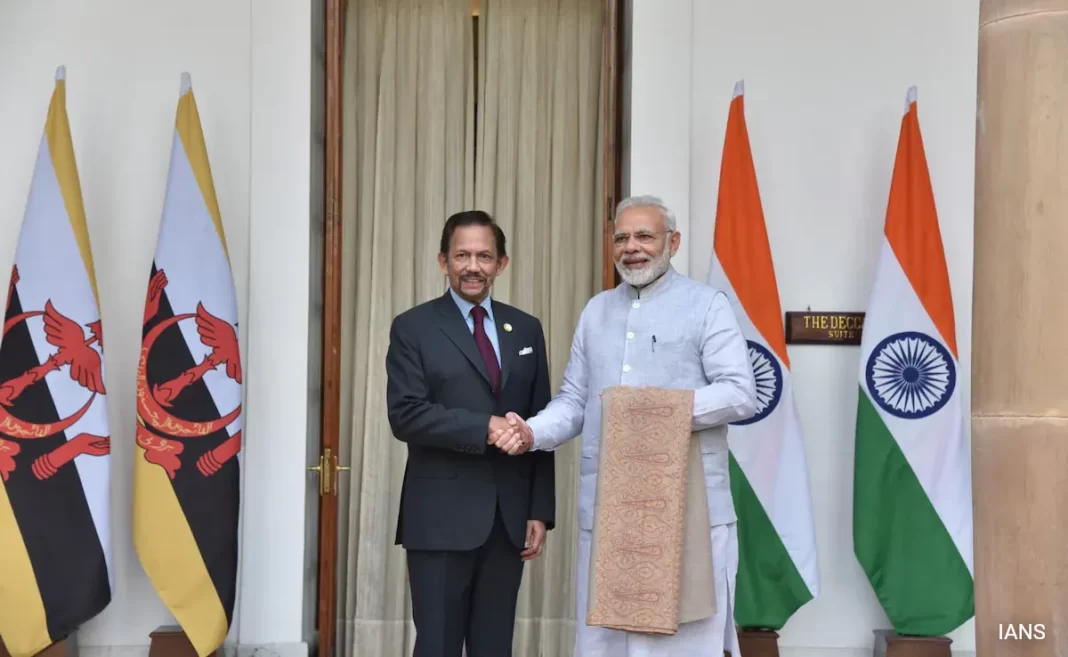Modi’s First-Ever Visit to Brunei
On Tuesday, Prime Minister Narendra Modi made history by landing in Brunei Darussalam, marking the first-ever bilateral visit by an Indian prime minister to the country. As a special gesture, the Crown Prince of Brunei, Haji Al-Muhtadee Billah, personally welcomed Modi upon his arrival.
During his visit, Modi will meet with Brunei’s top officials to discuss how to deepen bilateral ties. The prime minister stressed the significance of this visit, saying, “As we celebrate 40 years of diplomatic relations, I look forward to meeting His Majesty Sultan Haji Hassanal Bolkiah and other distinguished members of the Royal family to take our historical relationship to new heights.”
Strengthening India-Brunei Cooperation
The Ministry of External Affairs highlighted that Modi’s visit will enhance India’s cooperation with Brunei in various sectors. These include defense, trade, investment, energy, space technology, health, capacity building, culture, and people-to-people exchanges. The visit also aims to explore new avenues for cooperation in emerging sectors.
Brunei has a special place in India’s space program. The two countries have signed three Memorandums of Understanding (MoUs) in this field. In 2000, India established a telemetry tracking and command station in Brunei, which is crucial for monitoring eastward launches of satellites and rockets. The discussions during Modi’s visit are expected to focus on further enhancing cooperation in space.
Indian Diaspora Welcomes Modi in Brunei
The Indian diaspora in Brunei, numbering around 14,000, eagerly awaited Prime Minister Modi’s arrival. Members of the community expressed their excitement and pride. At last, we will be seeing him. We all are very happy, one member mentioned.
Modi’s Visit to Singapore
After his visit to Brunei, Prime Minister Modi will travel to Singapore on Wednesday, September 4. In Singapore, he will meet President Tharman Shanmugaratnam, Prime Minister Lawrence Wong, Senior Minister Lee Hsien Loong, and Emeritus Senior Minister Goh Chok Tong. Singapore plays an important role in India’s ‘Act East’ policy and Indo-Pacific vision.
During his visit, India and Singapore are set to sign numerous agreements, including one aimed at developing a semiconductor ecosystem. This agreement builds on recent discussions at the India-Singapore Ministerial Roundtable, which identified advanced manufacturing and connectivity as potential areas of engagement.
Modi expressed his anticipation for the meetings in Singapore, stating, “I look forward to my discussions to deepen our Strategic Partnership with Singapore, particularly in new and emerging areas of advanced manufacturing, digitalisation, and sustainable development.” He also mentioned his plans to meet with leaders of Singapore’s vibrant business community.
Focus on Long-Term Cooperation
Both Brunei and Singapore are crucial partners in India’s broader strategy for the region. Brunei is important for India’s energy security, with ongoing discussions aimed at securing long-term and predictable arrangements for gas supplies. In Singapore, the focus will be on advancing cooperation in technology, manufacturing, and sustainability.
Modi’s visit to these Southeast Asian nations is seen as a significant step in bolstering India’s relationships in the region. The trip reflects India’s commitment to strengthening ties with its neighbours and expanding its influence in the Indo-Pacific.
Way Forward
Prime Minister Narendra Modi’s visits to Brunei and Singapore are set to mark a new chapter in India’s relationships with these countries. By focusing on cooperation in areas like defense, space, technology, and energy, Modi aims to build stronger partnerships that will benefit all parties involved. The historic nature of these visits underscores the importance of India’s ‘Act East’ policy and its vision for the Indo-Pacific region.

